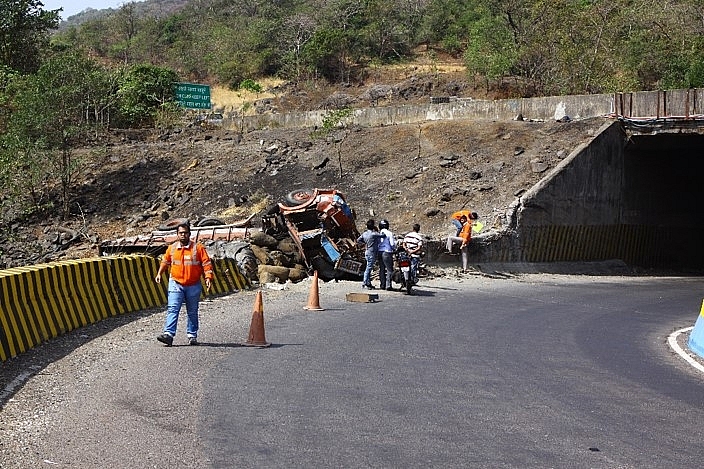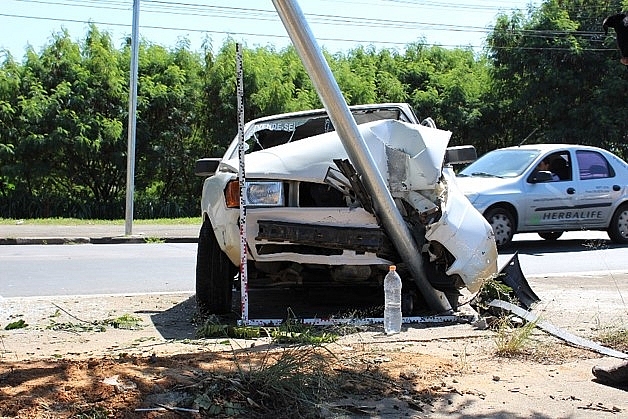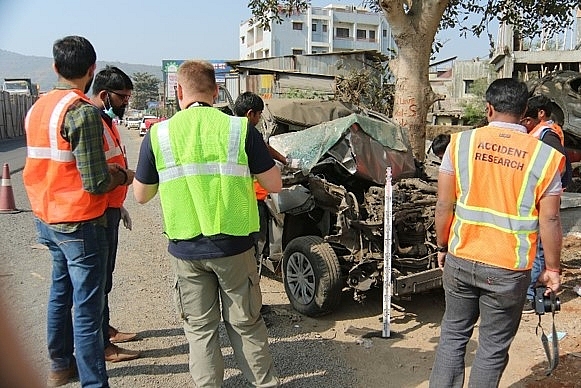Bosch: Multi-sectoral collaboration is key to safer roads
 |
| Bosch: Multi-sectoral collaboration is key to safer roads |
For Bosch and its multidisciplinary team of mathematicians, physicists, and automotive and mechanical experts at Bosch Accident Research, a vehicular accident is much more than just two objects colliding.
It is a confluence of elements that contribute to a sudden (and often fatal) crash. Worldwide, driver and rider error or misbehaviour is the leading cause of road accidents, but other circumstances also come into play: bad weather, poorly lit or damaged roads, lack of road signs, animal or pedestrian crossings, and vehicular flaws, either by design or improper maintenance, among many other factors.
As one of the world’s leading automotive suppliers, Bosch believes that improving traffic safety will be greatly served by fully utilising crash data to develop and implement life-saving measures based on facts, rather than intuition. Accident research takes all available data into consideration, as it seeks to understand the root causes of vehicular crashes in order to prevent them in the future.
The World Health Organization (WHO) estimates a global toll of 1.3 million deaths and injuries annually due to road accidents. Further research by the Asian Development bank reveals that about 60 per cent of these occur in Asia.
Bosch Accident Research collaborations in Asia
Across the Asian region, public policies and priorities have been devised and revised in pursuit of enhanced road safety. Policies need to address current and future traffic issues, which will require extensive study of the anatomy of road accidents.
“The collaboration of multiple sectors such as the government, automotive industry, and the academia will ensure long-term collection of more comprehensive data, nationwide reach, reduced costs, and unbiased analysis, as well as further recommendations,” said Martin Hayes, regional president of Bosch Southeast Asia.
Bosch recommends an end-to-end approach to look at the impact of crash statistics, where information gathered from crash scene investigations are analysed to determine key contributing factors.
The root causes, severity, and statistics of accidents are then summarised, along with an estimation of the benefits from preventive actions. Thomas Lich, senior expert at Bosch Accident Research, explained that, “This methodology derives insights that will help bring about safer vehicles, and aid government agencies in developing measures that enhance infrastructure, enforcement, and emergency response.”
 |
One such example of this is the Road Accident Sampling System of India (RASSI), a joint accident research project led by 13 members from vehicle OEMs, research agencies, and automotive suppliers; among them Bosch.
Since 2009, RASSI has been able to successfully document nearly 4,000 road accidents, and paved the way for infrastructure improvements on the Mumbai-Pune Expressway, increased driver and rider safety awareness, as well as countermeasures like the installation of advanced vehicle safety systems.
Uptake in motorised two-wheelers spurs need for greater vehicle safety
Southeast Asia is one of the fastest-growing markets for motorised two-wheelers in the world. In the same WHO report, riders of motorised two-wheelers, along with pedestrians, are unfortunately also found at the highest risk of road crashes, comprising nearly half of those who perish in road accidents.
Since 2005, the data collected and analysed by Bosch Accident Research reveals that the majority of the riders of motorised two-wheelers do not know how to react in emergency situations. This seems to be a common theme in three countries: Germany (33 per cent), India (35 per cent), and Thailand (43 per cent).
In all three countries, the second-highest reaction is falling down due to a lack of brakes, followed by a lack of braking power. Further research concluded that around one out of four accidents with injuries involving motorised two-wheelers could be prevented if these vehicles were equipped with antilock braking system (ABS), assisting the rider in critical situations by reducing the risk of a rider falling.
In India, RASSI results are used to identify effective safety measures, including the potential of active safety systems, such as a combined braking system (CBS) or ABS.
 |
Accident research also contributes to the development of state-of-the-art safety technologies. One example is emergency call or eCall for powered two-wheelers. Mandatory for all new passenger cars in the EU from April 2018, the technology for powered two-wheelers is still under investigation by the iHeERO (Infrastructure Harmonised eCall European Pilot).
To technically realise eCall for powered two-wheelers, the significant differences between passenger cars and two-wheelers need to be taken into account, including accident and injury severity. These key factors will then form the baseline for new safety systems.
Collective commitment
The cooperation between stakeholders to complete the circle of social responsibility is key to increasing road safety. Fortunately, a growing number of organisations in Southeast Asian countries are now working with Bosch Accident Research to assess local accident situations. Accident analysis is being explored in Indonesia, Malaysia, and Vietnam, while Thailand is focused on establishing on-spot accident investigation.
Thailand’s on-spot accident research is focused on incidents with personal injuries. The aim is to train researchers on collecting on-spot crash data using a similar methodology from other projects. This will equip researchers with the know-how in surveying pre-crash situations, such as road conditions and traffic management systems and analyse post-crash situations to identify root causes, such as driver reactions and vehicle road-worthiness.
They will also be trained to determine the efficacy of emergency response. This will be then the baseline for future research to come up with countermeasures to improve safety on Thailand’s roads, as experienced from other countries.
While the causes of road accidents are often universal, research will draw out unique circumstances where a differing action should be instigated. “A holistic approach based on accident research enables all parties to identify hotspots in infrastructure that need to be prioritised, along with the technology needed to improve emergency and rescue services,” said Lich.
Bosch believes that the first step in achieving road safety is an accident research initiative – one that is nationwide in scope and jointly driven by multiple sectors of society. The findings from the research will provide much-needed insights that will serve as the scientific basis for more effective road safety policies, ultimately resulting in millions of lives saved each year.
What the stars mean:
★ Poor ★ ★ Promising ★★★ Good ★★★★ Very good ★★★★★ Exceptional
Related Contents
Latest News
More News
- Vietnam sets ambitious dairy growth targets (February 24, 2026 | 18:00)
- Masan Consumer names new deputy CEO to drive foods and beverages growth (February 23, 2026 | 20:52)
- Myriad risks ahead, but ones Vietnam can confront (February 20, 2026 | 15:02)
- Vietnam making the leap into AI and semiconductors (February 20, 2026 | 09:37)
- Funding must be activated for semiconductor success (February 20, 2026 | 09:20)
- Resilience as new benchmark for smarter infrastructure (February 19, 2026 | 20:35)
- A golden time to shine within ASEAN (February 19, 2026 | 20:22)
- Vietnam’s pivotal year for advancing sustainability (February 19, 2026 | 08:44)
- Strengthening the core role of industry and trade (February 19, 2026 | 08:35)
- Future orientations for healthcare improvements (February 19, 2026 | 08:29)

 Tag:
Tag:

























 Mobile Version
Mobile Version